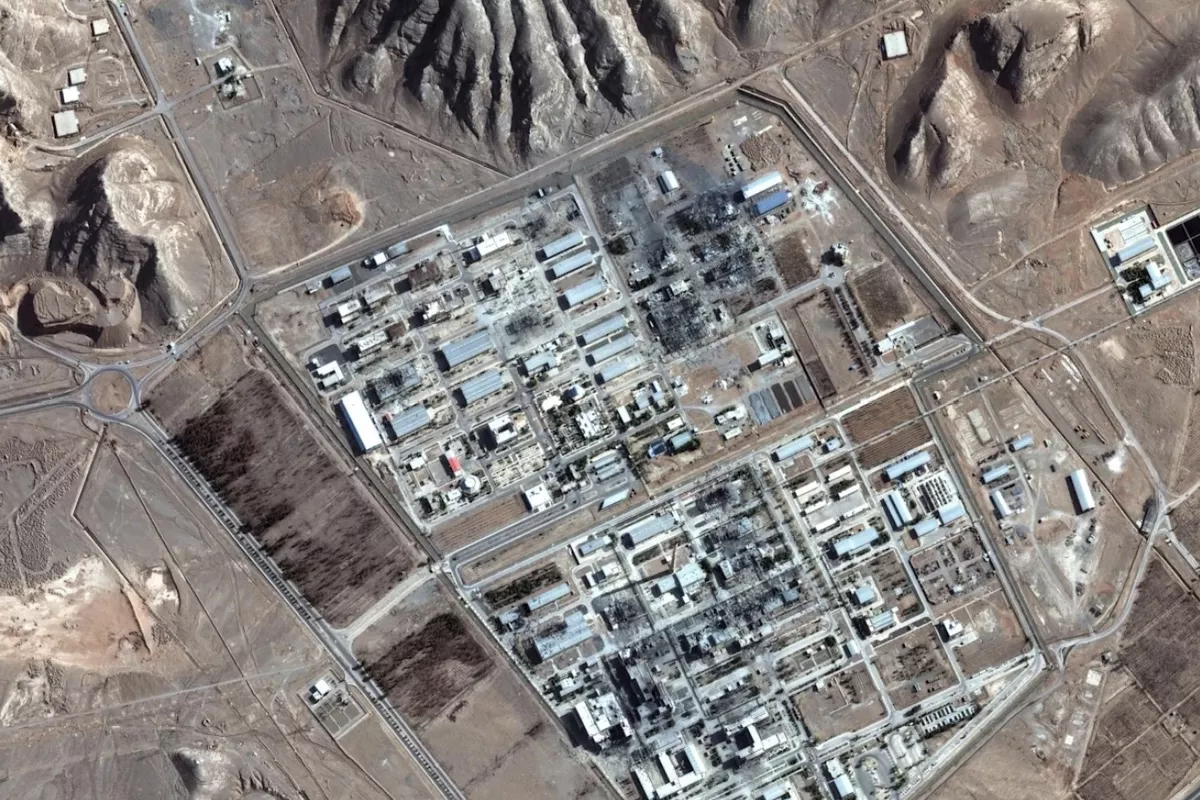
Maxar Technologies/AFP/Getty Images
The UK, France, and Germany are expected to announce on Thursday that they will reimpose comprehensive sanctions on Iran due to its refusal to allow UN inspectors access to all of its nuclear sites.
The decision, under consideration for months, is likely to provoke the worst crisis in Iran’s relations with the west since Israel’s attacks on the country’s nuclear sites in June. Iran is already preparing countermeasures, The Caspian Post reports citing foreign media.
The planned reimposition of the sanctions, contained in six suspended UN resolutions, will start on 18 October when the original nuclear deal signed in 2015 expires.
The move by the three European powers - known as the E3 - cannot be vetoed by permanent members of the UN security council such as Russia and China.
The E3 is demanding Iran fully readmit inspectors from the UN nuclear watchdog the International Atomic Energy Agency (IAEA). Europe also wants details on what happened to the estimated 400kg stockpile of Iran’s highly enriched uranium after Israel’s attacks in June.
Confirmation of the partial return of IAEA inspectors on Wednesday was met with protests by officials in Tehran, who claim the strict preconditions they set have been breached.
The European countries still hope the expected formal notification to the UN that they are triggering the snapback of the sanctions will provoke Iranian concessions and further diplomacy.
Once the E3 diplomats start the process on Thursday, they have just over 30 days to press ahead or to defer the snapback, likely for six months. Negotiations may also occur at the UN over the future terms for lifting the sanctions once they have been reimposed.
The Iranian foreign ministry has warned it would respond if Europe proceeded with the snapback. Russia has proposed at the UN that the snapback of sanctions be delayed six months to 18 April to give diplomacy more time, but does not have the required votes on the UN security council.
IAEA inspectors left Iran at the start of the Israeli-US bombing campaign on the nuclear sites in June. The readmission of the inspectors is strongly opposed by those Iranians who regard the IAEA as complicit in Israel’s attacks and as little more than spies likely to hand over information directly for use by Israel. Iran has also complained that the IAEA has never condemned the Israeli attacks.
Share on social media